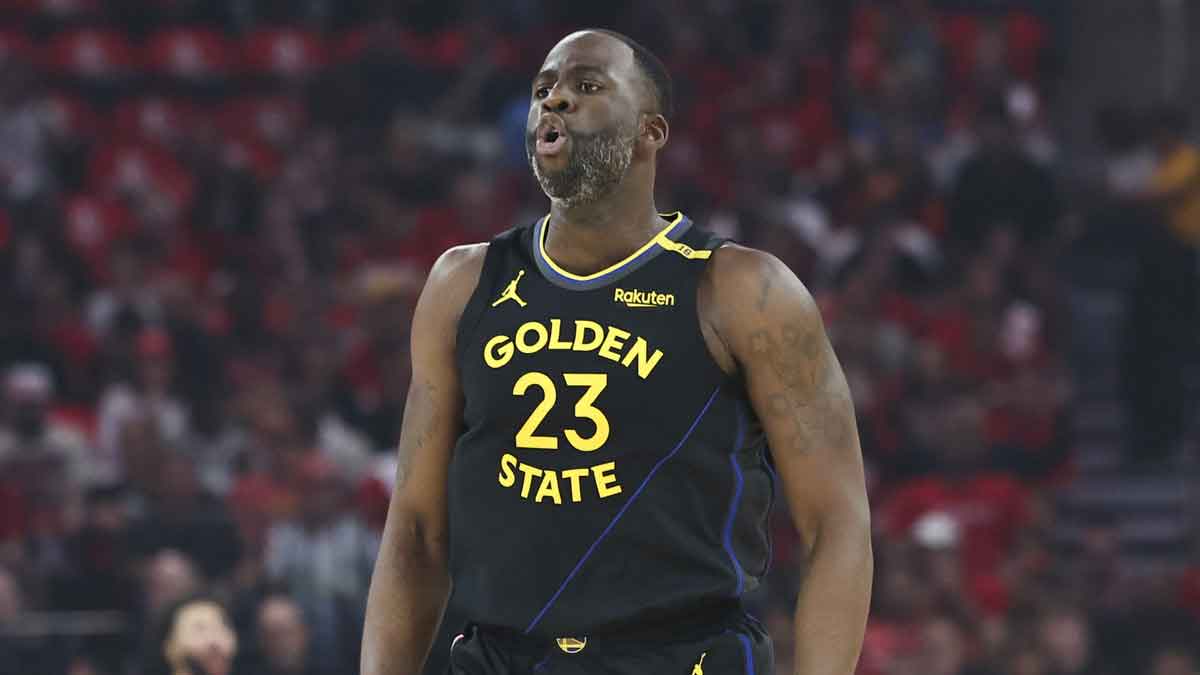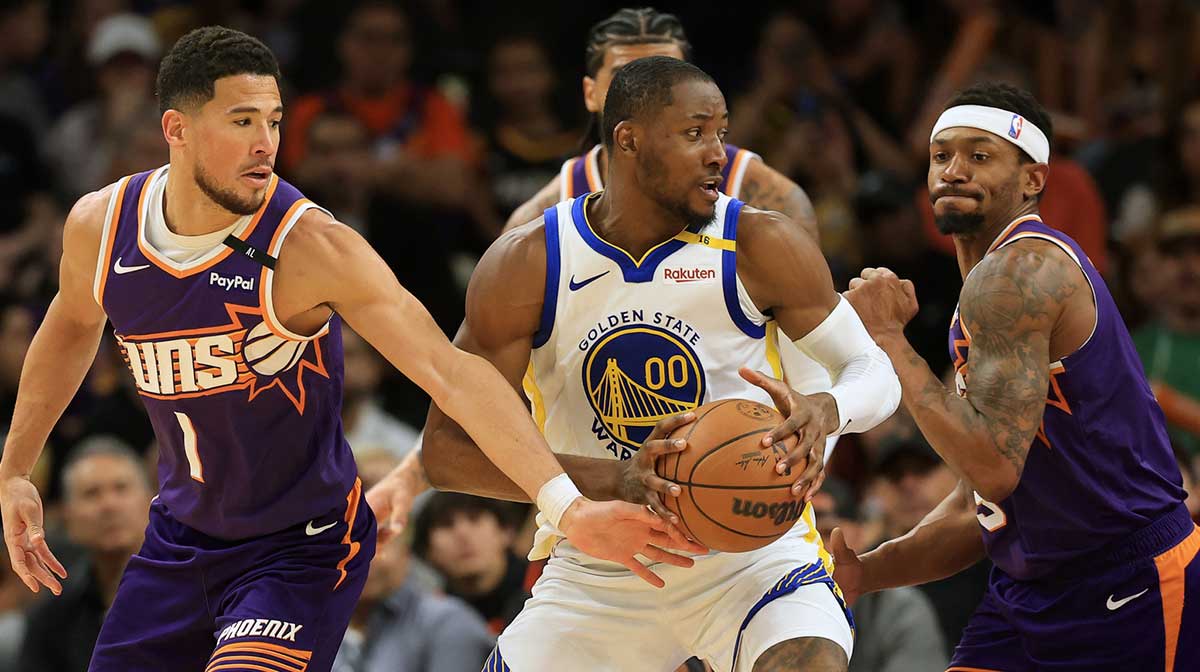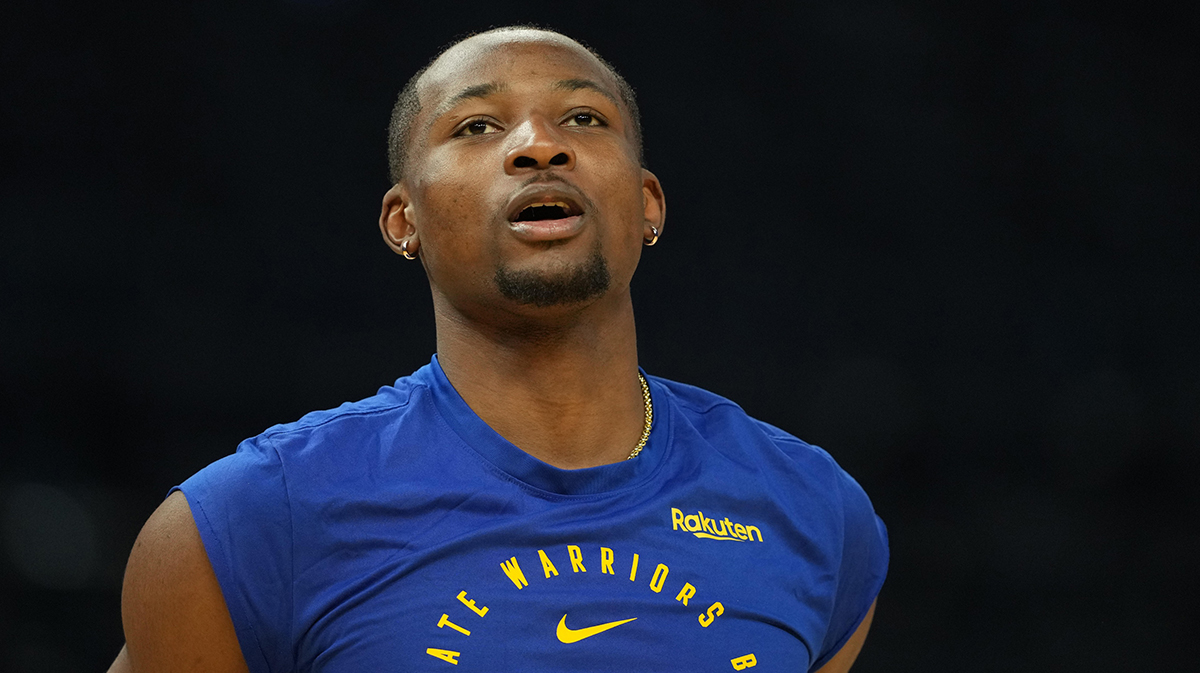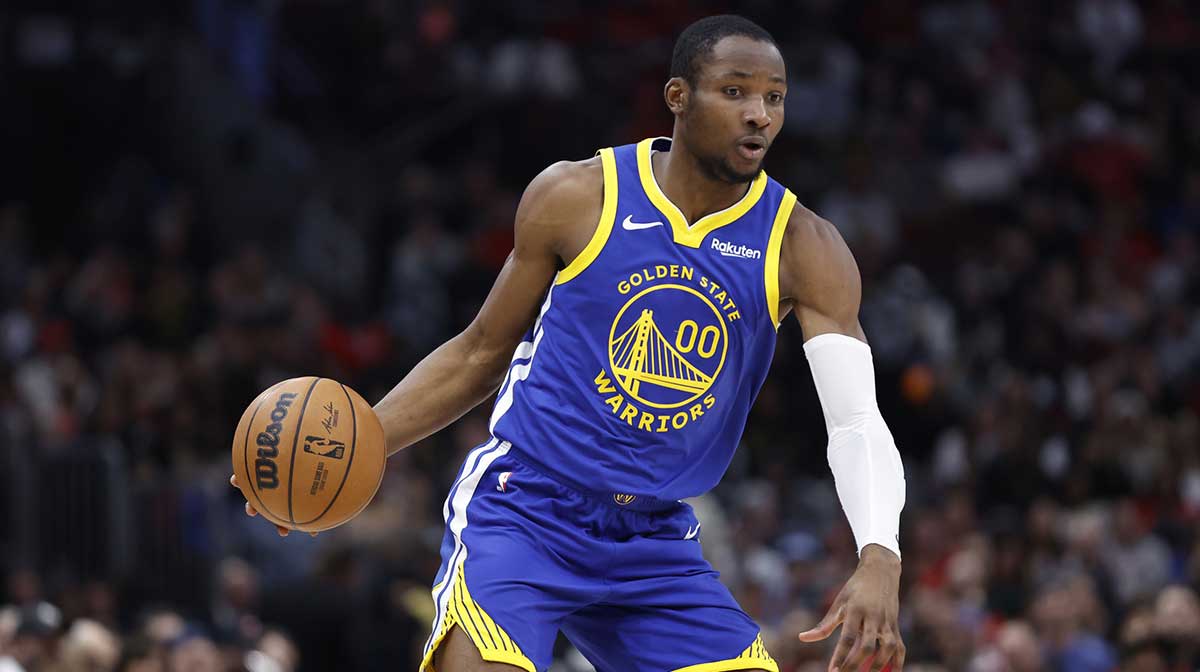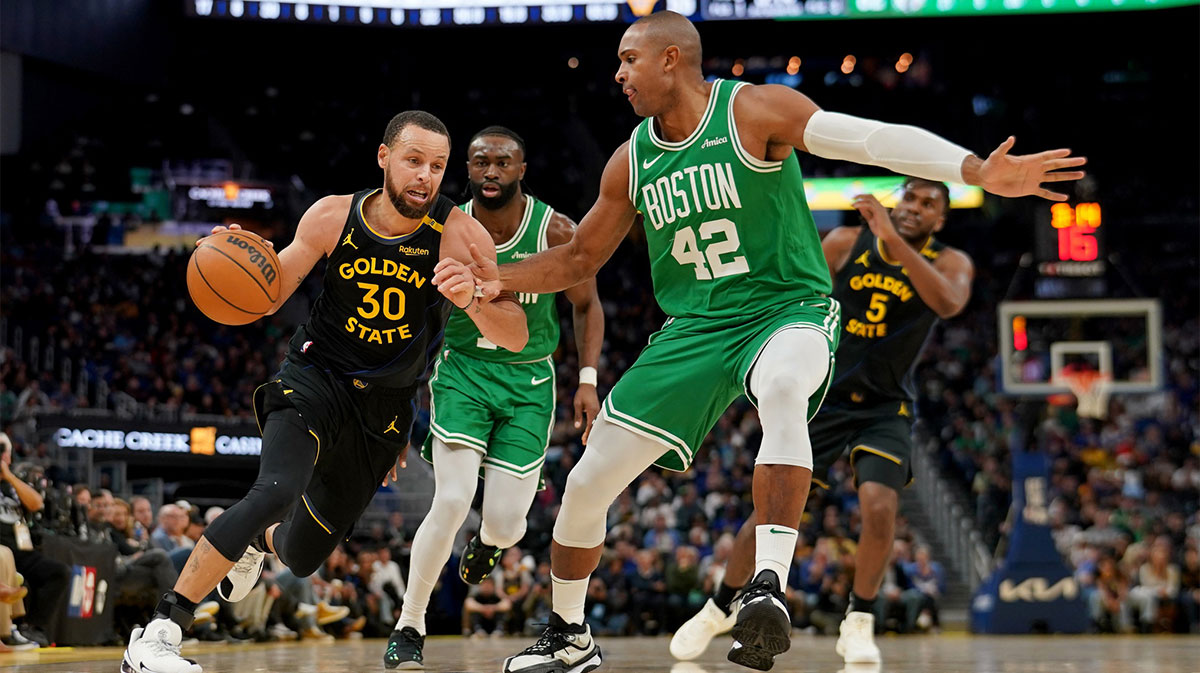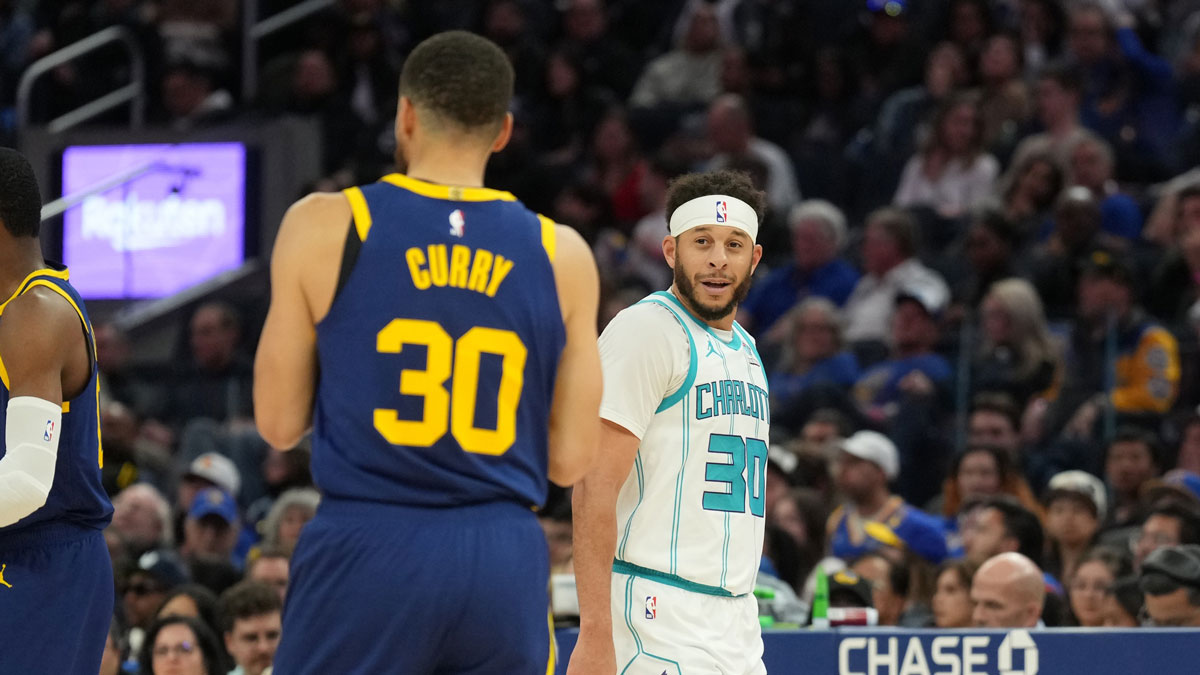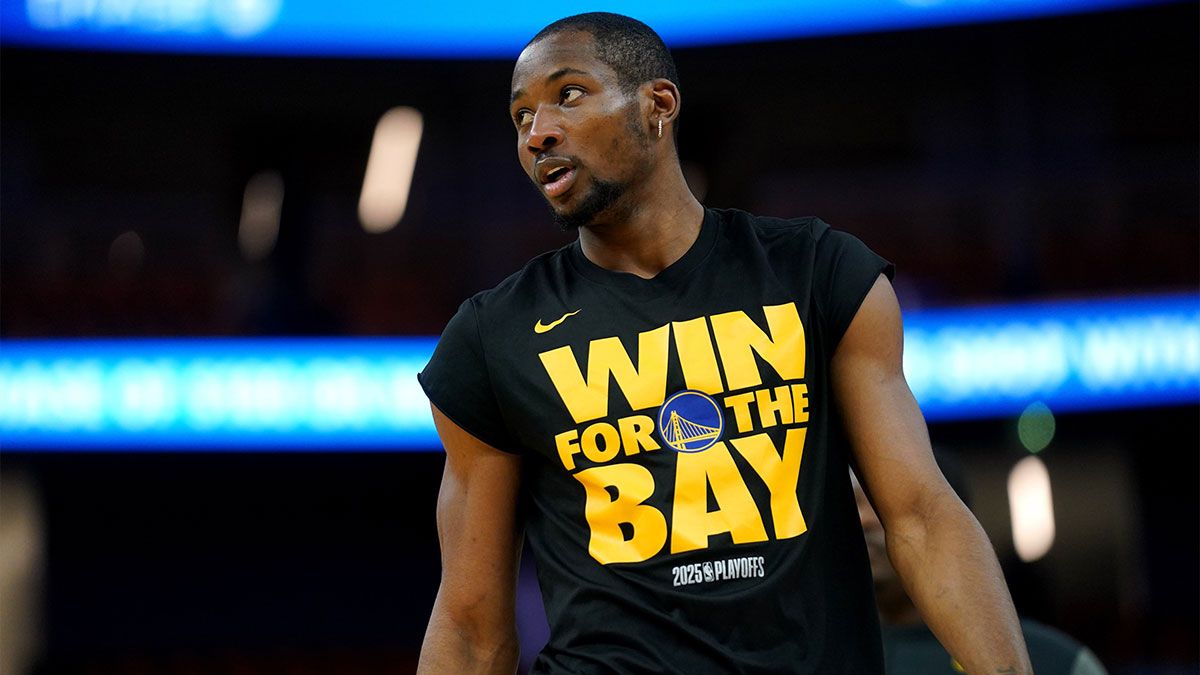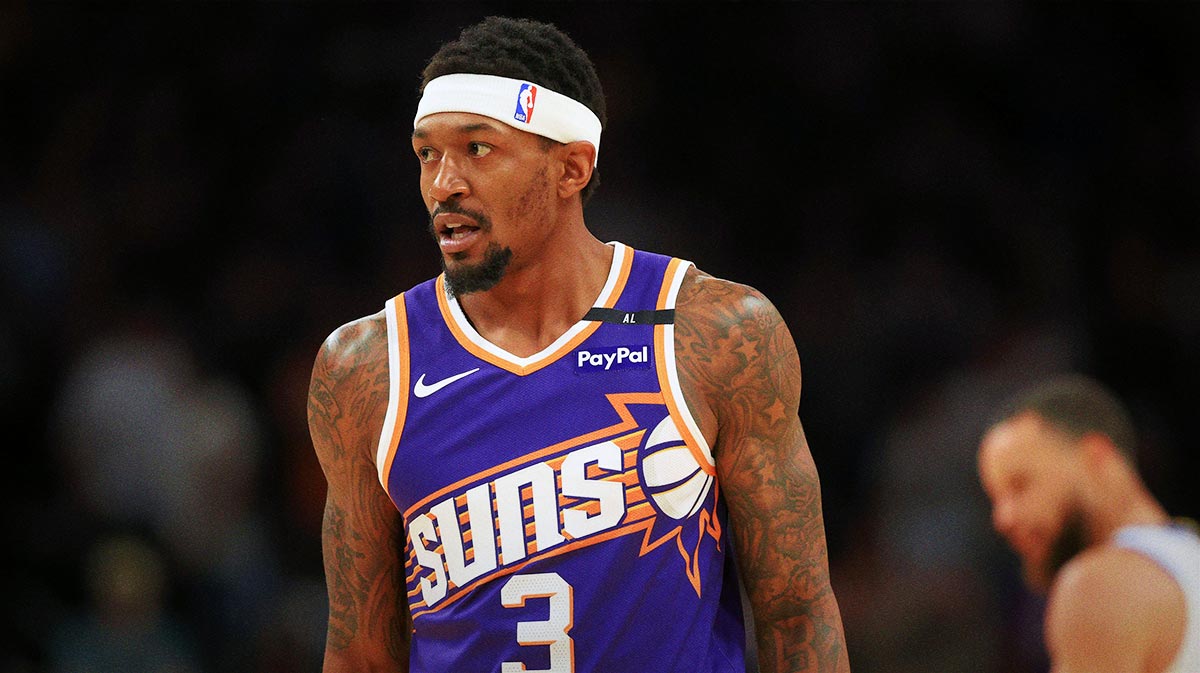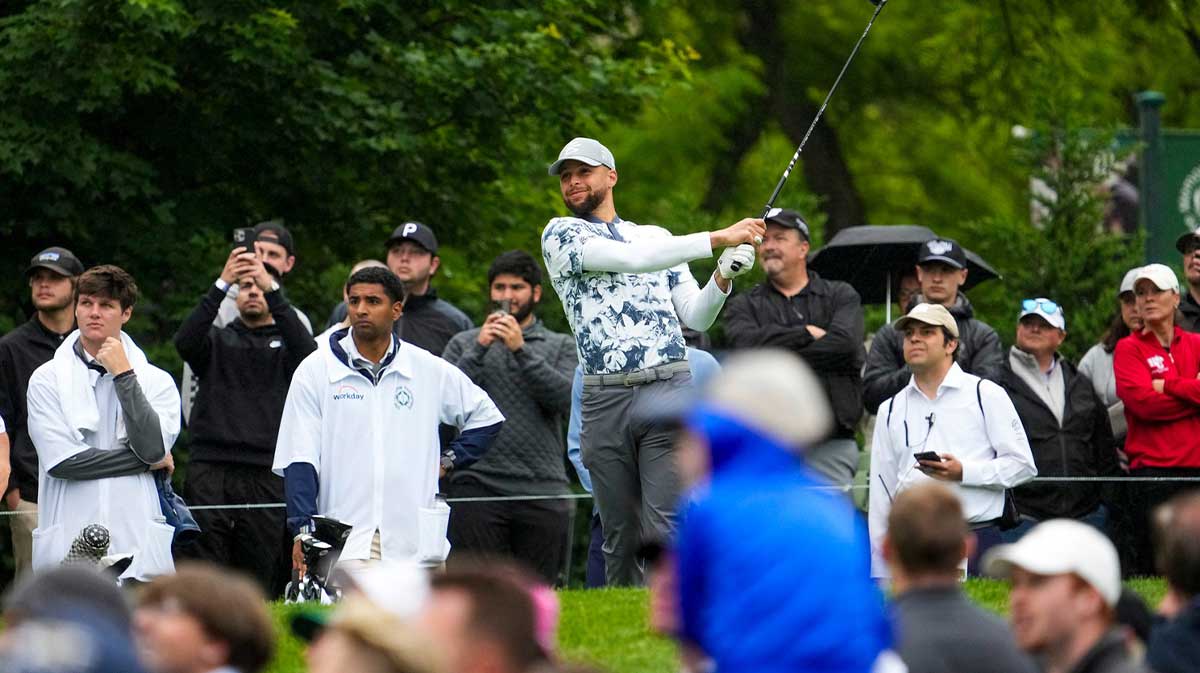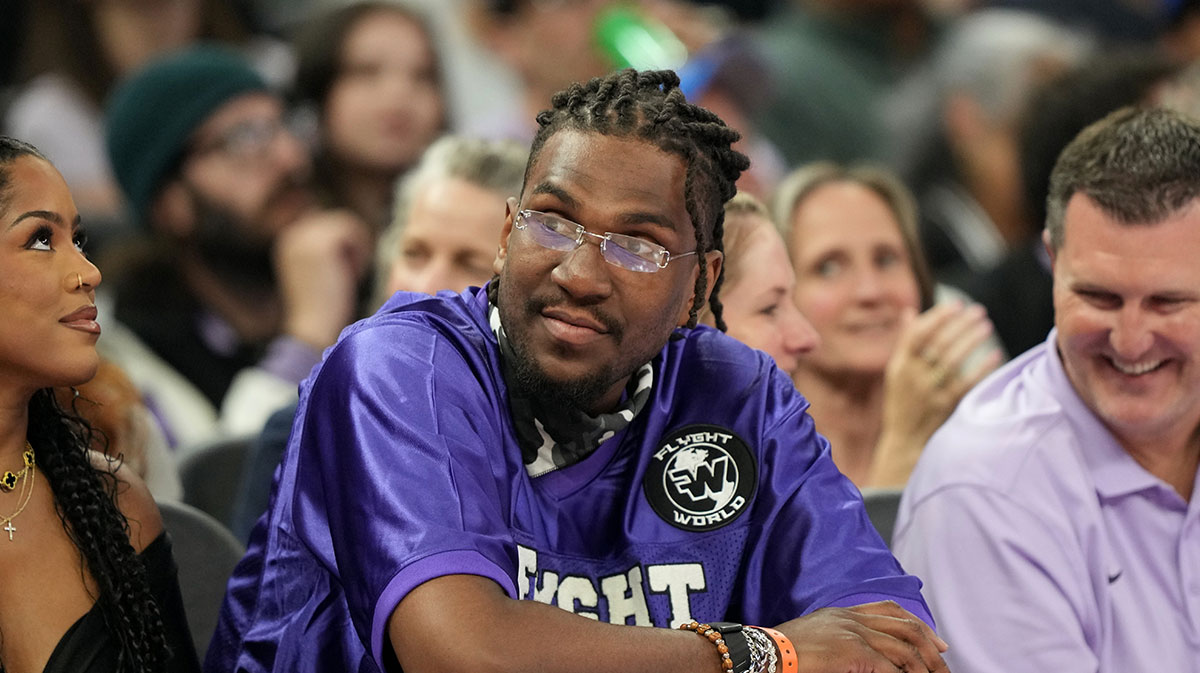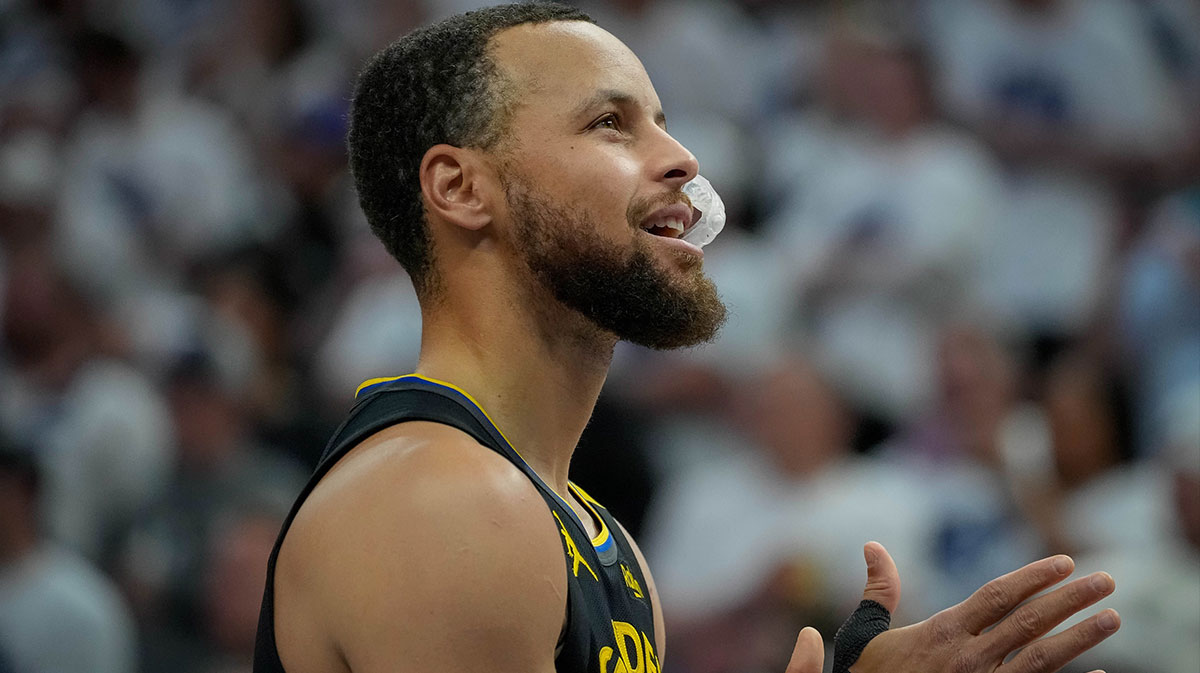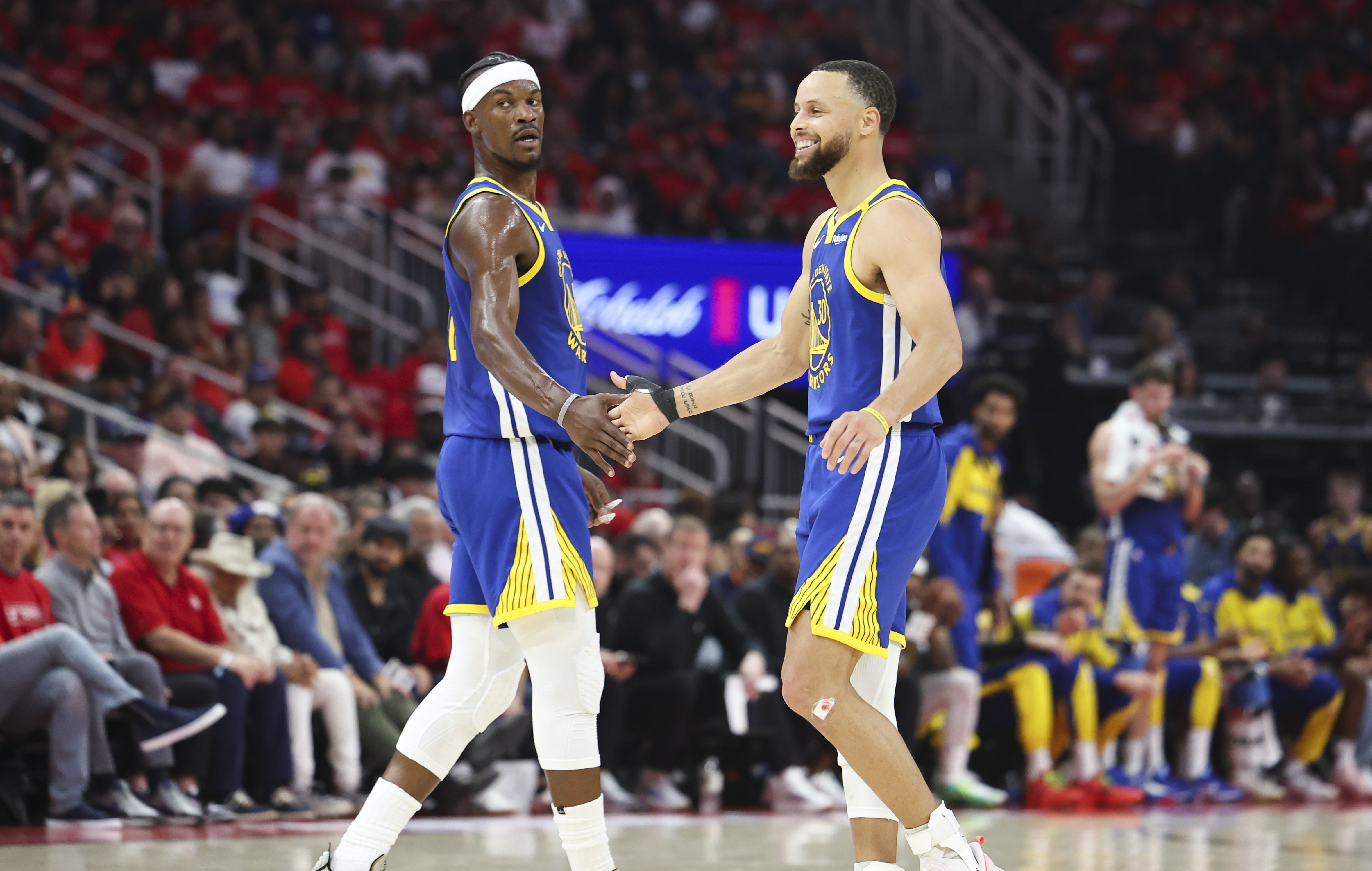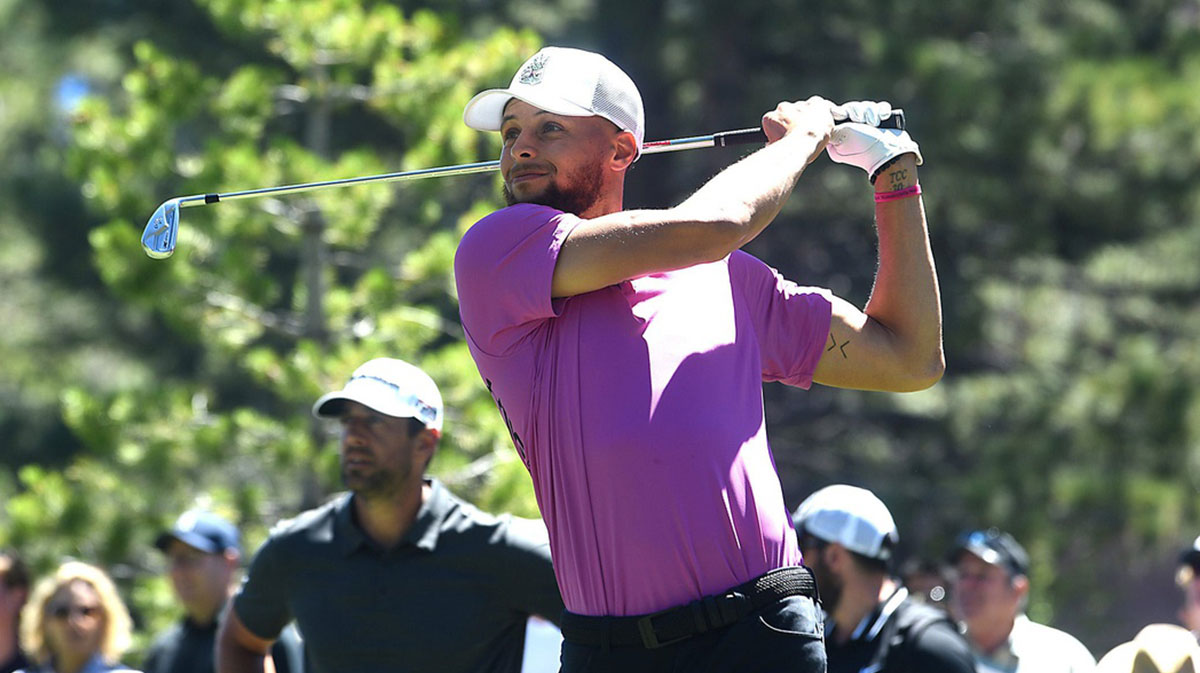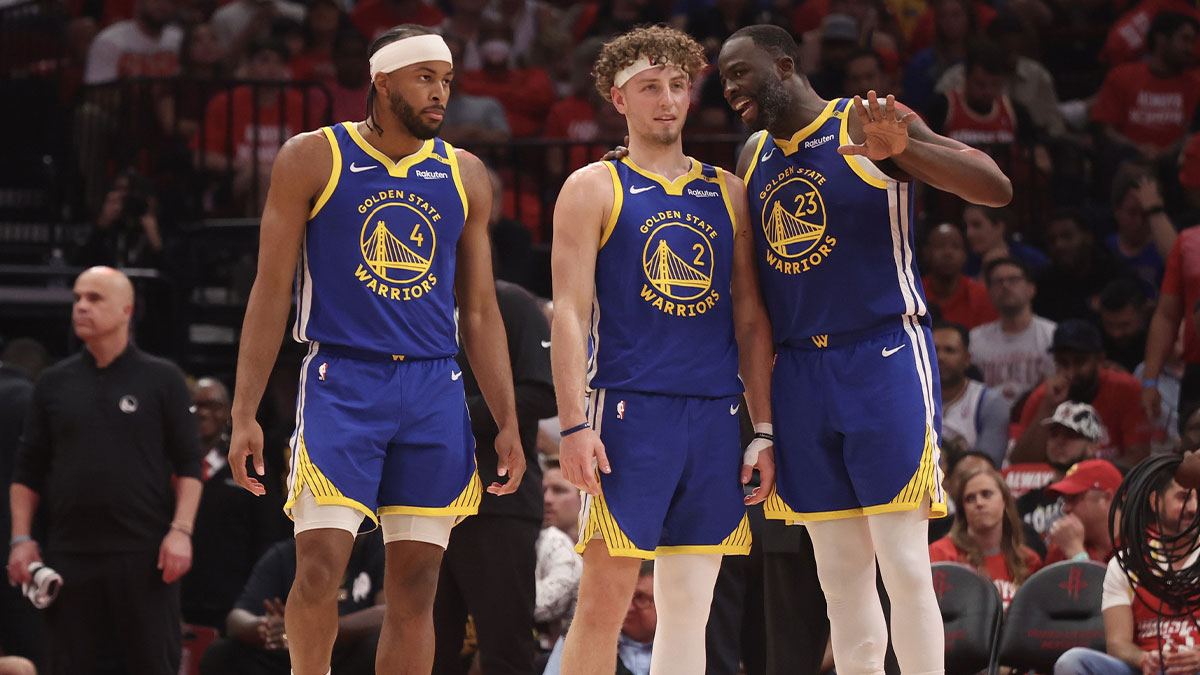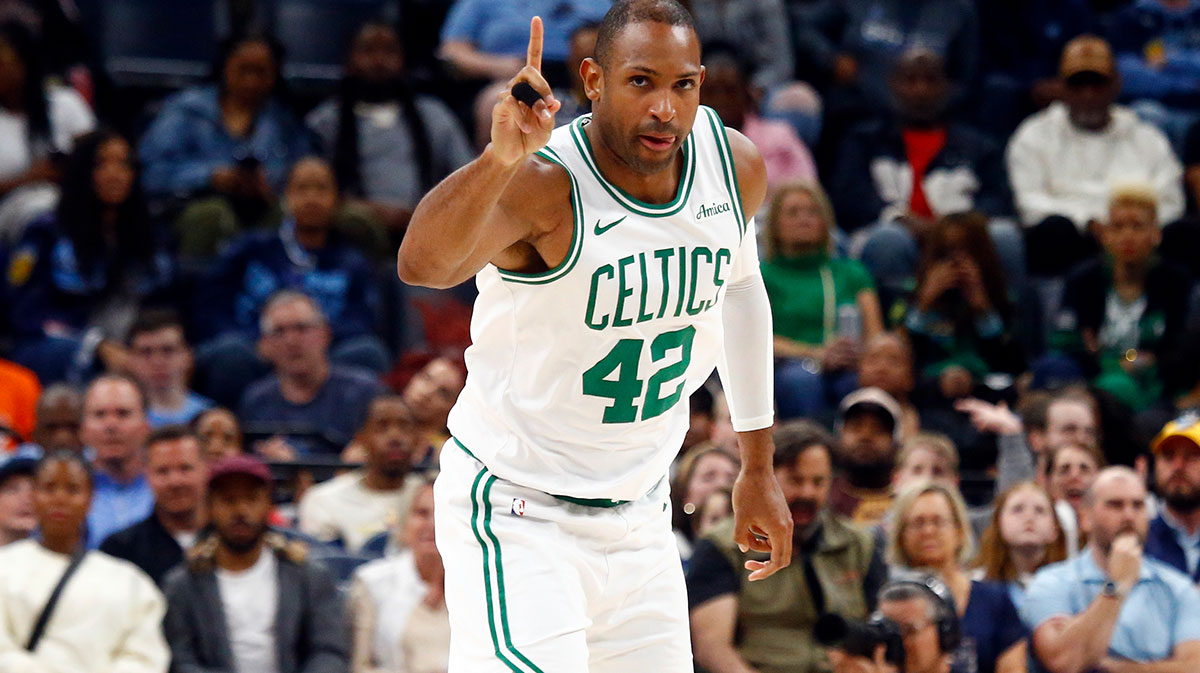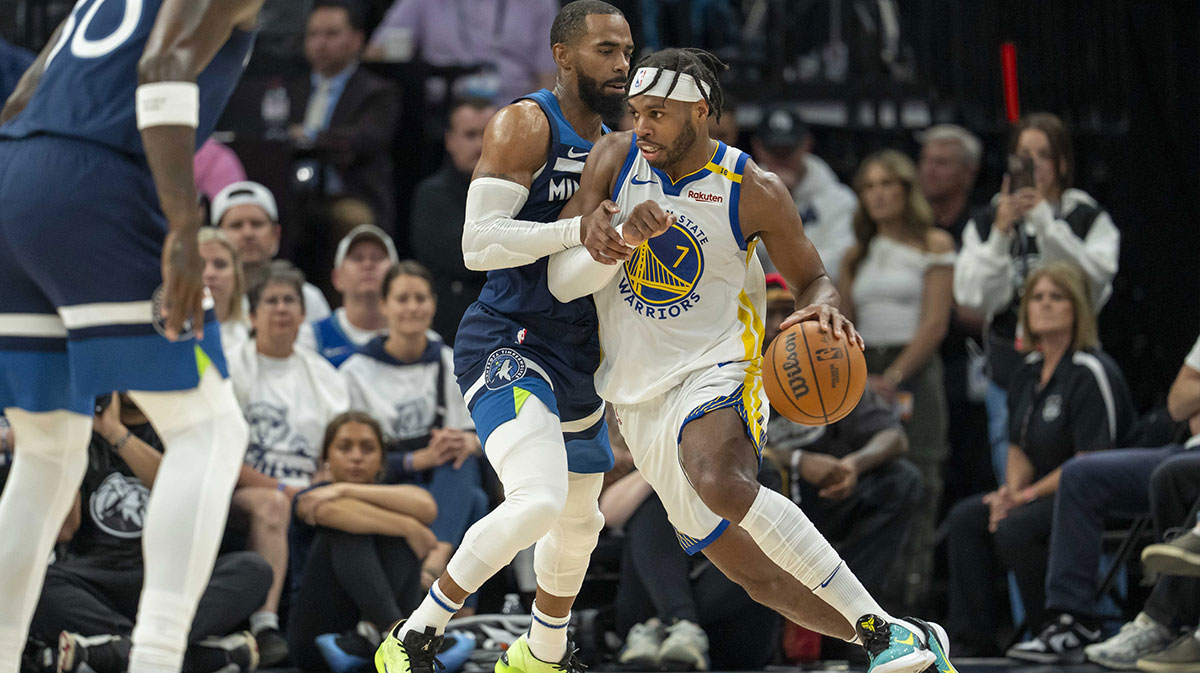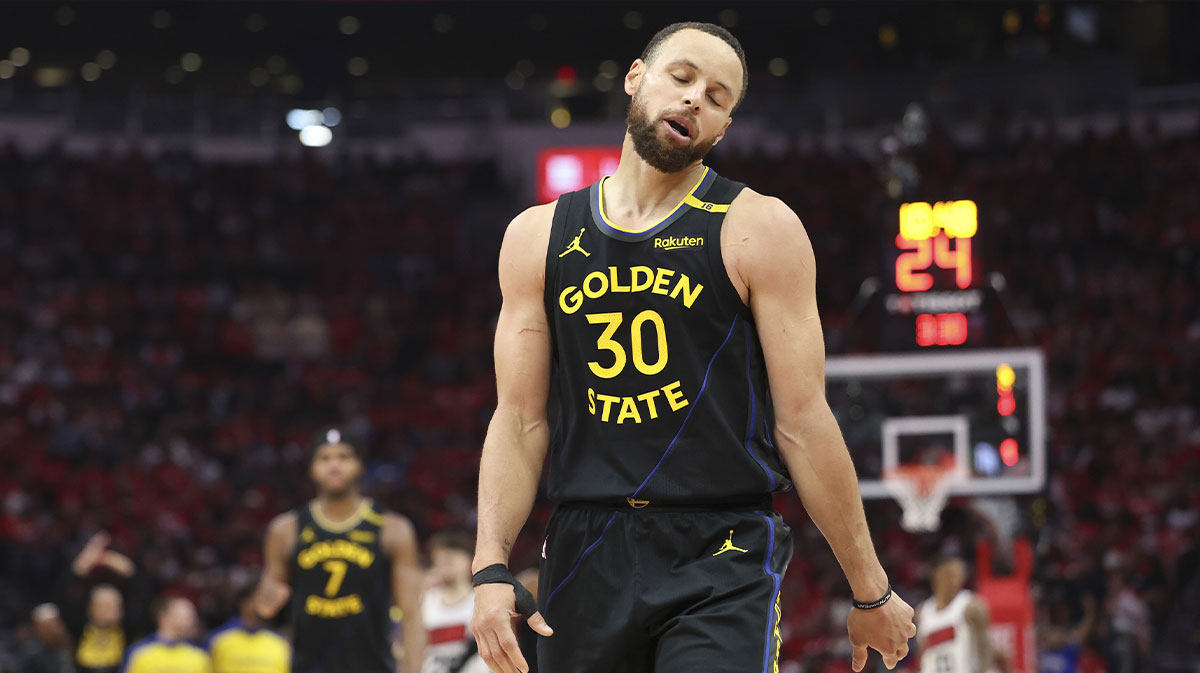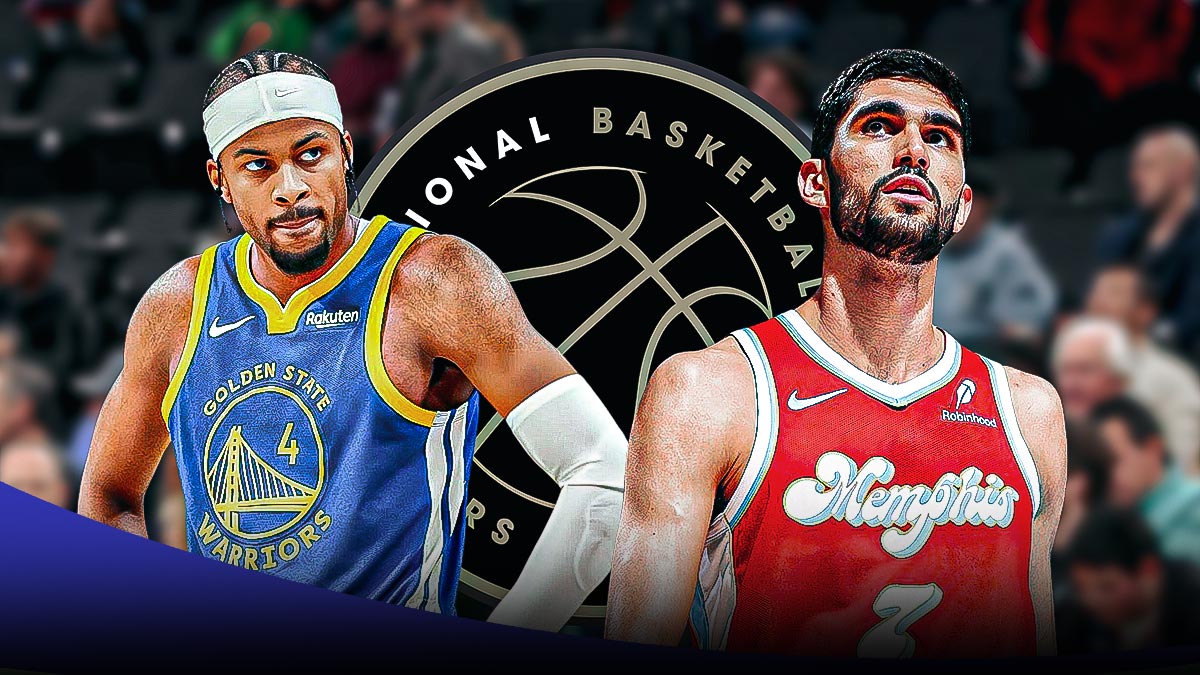Stephen Curry's Game 6 performance to send the Houston Rockets packing was almost poetic. It was another example of a player using one half of basketball artistry to outweigh the mediocre, series-long production.
When you think about it, this is what makes the playoff intensity so awesome (or cruel if a player is on the other side of it). In a series, the first five and a half games can lead to a narrative surrounding a player. The only story people will remember years later, however, is how they finished it. You will always remember how LeBron James closed out the 2016 NBA Finals defensively versus how he and the Cavaliers started it, down 3-1 and appearing lost. On the other side, you will always remember how Russell Westbrook capped off his two recent exits in the first round.
For Curry, this series was the worst possible matchup for him. The Rockets' physical tactics and switching scheme played major roles in throwing the two-time MVP off track. But when bad luck and a dislocated finger also enter the fray, it can be a perfect storm to end a title run.
For the first 23 quarters of action in this series, Curry had scored 110 points on 104 shot attempts, with 17 of those points coming off free throws. That includes the opening half of Game 6, entering the halftime locker room scoreless. On wide-open 3-pointers with at least six feet of space, he was only 5-of-18 in the first five games. With four to six feet of space, he was 8-of-24.
The second half was a complete reversal. Instead of crumbling under pressure and just living to fight another day in Game 7, Curry flipped the script with one of the most efficient second halves in playoff history. He scored all 33 of his points in the second half alone, shooting 9-of-15 from the field and 11-of-11 at the foul line. A series-long figure of 1.06 points per shot turned into 2.2 in the final moments that mattered.
Twenty-three of Curry's points were scored in the fourth quarter alone, including three bombs from the right wing. The Warriors generated 18 points out of nine pick-and-roll possessions between Curry and Draymond Green. Half of those points were from these triples — a couple of them being psychotic shots that surely made Mike D'Antoni sick:
Curry had this to say after the game:
“I've heard a lot of noise this series for sure. I'll just leave it at that. Whether it was positive or negative, whatever the case is, I know what I'm capable of.”
Of course, Curry was referring to the chatter surrounding his playoff letdowns. Specifically, how his statistical production might take a step back in April to June compared to the regular season. One doesn't need to check Twitter frequently to see it, either. National sports debate shows were harping on it all week after his Game 3 embarrassment, and plenty of other headlines questioned his ability.
For the series, he only shot 27.9 percent from 3 and 56.0 percent at the rim. Both were far below his standards. Layups weren't falling, triples were rimming out, and he even failed on a breakaway dunk. But the Warriors still prevailed despite his 53.9 true shooting percentage in those six games combined, with Kevin Durant missing the fourth quarter of Game 5 and the entirety of Game 6.
Does it say more about the Rockets that everything broke their way this time and they still couldn't knock down the barrier, or does it say more about Golden State and the absurdity it takes to beat them four times? It's likely the Rockets. With their predictable — yet very effective — style, it's easier to game plan for. These teams have met four different times in the postseason since Steve Kerr went to the Bay. He is now 16-7 against the Harden-led Rockets in the playoffs.
When the Warriors are without Durant, they take a stroll down memory lane with the Curry and Green actions at the top of the key. Knowing how much the Rockets have emphasized switching, Green knew to slip the screen so it would get Houston's defense unbalanced. Then, realizing that D'Antoni was throwing traps at Curry, Golden State used its cheat code in those situations: a 4-on-3 opportunity for Green in half-court situation.
As Curry prepares for the Portland Trail Blazers in the Western Conference Finals, he certainly knows the defensive pressure won't be the same. Houston maximized its chances by playing lockdown defense on the perimeter for five and a half games. It was just the mental breakdowns on the Curry-Green pick-and-roll in the fourth quarter that roasted them Friday. With respect to the Blazers for already making it further than anyone expected in the preseason, they haven't been disciplined enough to contain most of the Warriors' sets.
Houston felt comfortable with probably 90 percent of the Warriors' offensive attack and counters they would throw. The 10 percent killed them when Durant's absence threw a wrench in the plan. They were the only West challenger that could reach that level. Portland is without its force in the middle, Jusuf Nurkic, who genuinely gave the Warriors issues and made them send desperate double-teams in a couple matchups. Curry won't be sweating his next competition.
The truth about Curry's playoff résumé
At what point do we stop doing this with players around the league? Recency bias seems to get stronger and more annoying as the years go on. Failing to put your imprint on a particular series is one thing. No player should be protected from criticism if they don't show up in a high-stakes moment, especially if they have lofty expectations and two of the best floor-spacers in the league as teammates.
However, it would make a lot more sense if people kept their arguments tied to that specific instance. What often happens? A player's shortcomings in a series or stretch of games turn into a discussion about their postseason career — usually without acknowledging the past successes. It feels short-sighted to hold a referendum on someone's playoff career after a few average performances of a 102-game sample.
Including the series versus Houston where he shot well below his usual efficiency rate, Curry is now averaging 25.9 points in his 102 playoff games. By sheer volume, he's 10th all-time in career scoring average throughout the postseason.
After 21 playoff series, he has an overall record of 70-32 (.686). To put that in perspective, it's the winning percentage of a 57-win team throughout a regular season. Except it's in the playoffs, against the highest level of competition, with 17 of those series being played in the hellish Western Conference.
Curry's 60.7 true shooting percentage in those 102 playoff games has somehow been undervalued. Only seven players in NBA history have maintained at least 25 points per game and 56 percent true shooting in the playoffs (minimum 20 games). Curry's output might not be on Durant or Michael Jordan's level of shot volume, but he has put the ball in the basket more efficiently than both due to his 3-point accuracy:
- Stephen Curry – 25.9 points on 60.7 TS% (102 games)
- Kevin Durant – 29.2 points on 59.6 TS% (138 games)
- LeBron James – 28.9 points on 57.9 TS% (239 games)
- Dirk Nowitzki – 25.3 points on 57.7 TS% (145 games)
- Hakeem Olajuwon – 25.9 points on 56.9 TS% (145 games)
- Michael Jordan – 33.4 points on 56.8 TS% (179 games)
- George Gervin – 27.0 points on 56.4 TS% (59 games)
If you don't consider true shooting a reliable measure due to its incorporation of free throws in the formula, the next best efficiency metric would be effective field goal percentage. It places a higher value on 3s than 2s — getting the extra point should matter if you're good at it — and Curry still tops the playoff field there:
- Curry – 55.9 eFG%
- Olajuwon – 52.9 eFG%
- James – 52.8 eFG%
- Durant – 52.7 eFG%
- Gervin – 50.8 eFG%
- Jordan – 50.3 eFG%
- Nowitzki – 49.0 eFG%
Is Curry a better playoff performer overall than Jordan or James?
Of course not. We're not here to get silly. The amount of success bigger guards and wings have had in the postseason is undeniable.
But the notion that he has shrunk in multiple series with high stakes is false. The one blemish Curry has on his playoff résumé is unquestionably the 2016 Finals, a series that featured him shooting a combined 9-of-29 from 3 in Games 5 and 7 — both closeout opportunities at home. In those two games, he only got to the free-throw line five total times, too.
As for the “no Finals MVP” argument about his career up to this point, is it really a black mark if the voters erroneously gave the award to Andre Iguodala in 2015? Curry averaged 26.0 points, 6.0 assists, and 5.0 rebounds in that series on a 58.5 true shooting percentage. Nowitzki had nearly identical numbers in 2011 (both series ended in six games) and the voting wasn't even a question.
There are many bright moments in Curry's playoff career that greatly outshine his darkest mistakes:
- Returning in Portland after the MCL sprain in 2016, pouring 40 points on the Blazers to put Golden State up 3-1. His fourth-quarter flurry sent the game to overtime, where he scored 17 points in five minutes (NBA record).
- His 37 points on 23 shots in Game 5 of the 2015 Finals, hitting seven 3-pointers after Matthew Dellavedova gained attention for making life hard for Curry.
- Going for 27 points, 10 assists, and nine rebounds in the 2018 Game 7 at Houston. In the win-or-go-home situation, he nailed seven triples when Houston only made seven as a team.
- Having Finals MVP-worthy production in both the 2017 and 2018 championship series — averaging 26.8 points, 9.4 assists, and 8.0 rebounds in those five games with Cleveland in 2017. It's debatable, but that was probably the best Cavaliers team of the entire four-year run.
Now, he can add another to the list. Ending the Rockets' season by staying poised in the second half of Game 6 had to be one of his favorite playoff wins to date.
Any time a player hears that he is no longer able to carry his team without his co-star, it gives them an incentive to tap into the greatness they used to show.
This isn't exclusive to Stephen Curry — we see it all the time in this league. But this is the last team that needs bulletin board material, so perhaps the noise about his playoff career should take a backseat for now.

